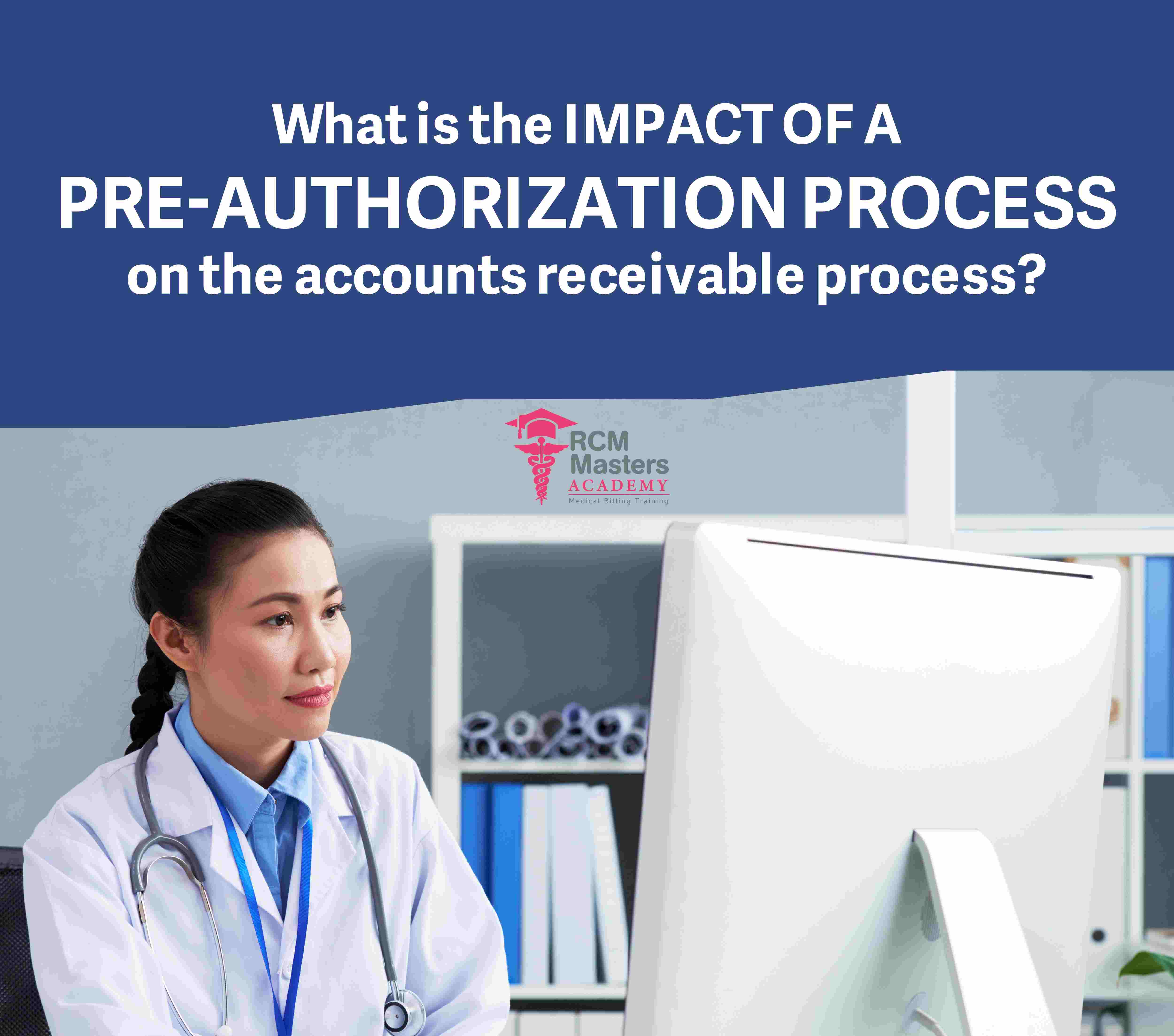 info@rcmmastersacademy.com
info@rcmmastersacademy.com

In the world of healthcare billing and reimbursement, the pre-authorization process has become increasingly important. This process involves obtaining approval from a patient's insurance company before a medical procedure or service is performed. While it may seem like just another bureaucratic hurdle, the pre-authorization process can have a significant impact on the accounts receivable process for healthcare providers.
The pre-authorization process typically involves submitting documentation to the insurance company, including medical records and a description of the planned procedure or service. The insurance company then reviews this information and decides whether or not to approve the procedure or service. If the request is approved, the insurance company will provide an authorization number, which the healthcare provider can use to bill for the service. If the request is denied, the healthcare provider will need to either appeal the decision or seek alternative treatment options for the patient.
One of the most significant impacts of the pre-authorization process on the accounts receivable process is that it can delay payment for services rendered. Because the pre-authorization process can take several days or even weeks, healthcare providers may not receive payment for services until well after they have been provided. This delay in payment can create cash flow issues for healthcare providers, who may need to pay staff and other expenses in the meantime.
In addition to delaying payment, the pre-authorization process can also lead to denials and rejections of claims. If the pre-authorization request is denied, the healthcare provider will not be able to bill for the service, and will need to either appeal the decision or seek alternative treatment options for the patient. Even if the pre-authorization request is approved, the insurance company may still deny or reject the claim for other reasons, such as coding errors or insufficient documentation. In either case, the healthcare provider will need to take additional steps to resolve the issue and receive payment.
Another impact of the pre-authorization process on the accounts receivable process is that it can increase administrative costs. Healthcare providers must invest time and resources into submitting pre-authorization requests, tracking their status, and following up on denials or rejections. This administrative burden can be particularly challenging for smaller healthcare providers, who may not have the same resources as larger organizations.
Despite these challenges, the pre-authorization process can also have some benefits for the accounts receivable process. By obtaining pre-authorization for services, healthcare providers can reduce the risk of denials and rejections, as they have already received approval from the insurance company. Additionally, the pre-authorization process can help healthcare providers better understand the coverage and payment policies of various insurance companies, which can ultimately lead to more efficient billing and reimbursement processes.
In conclusion, the pre-authorization process can have a significant impact on the accounts receivable process for healthcare providers. While it can help reduce denials and rejections and improve understanding of insurance coverage, it can also lead to delays in payment and increased administrative costs. As such, healthcare providers must carefully weigh the pros and cons of the pre-authorization process and develop strategies to manage its impact on their revenue cycle.
You can enroll for our Online Medical Billing Training here: